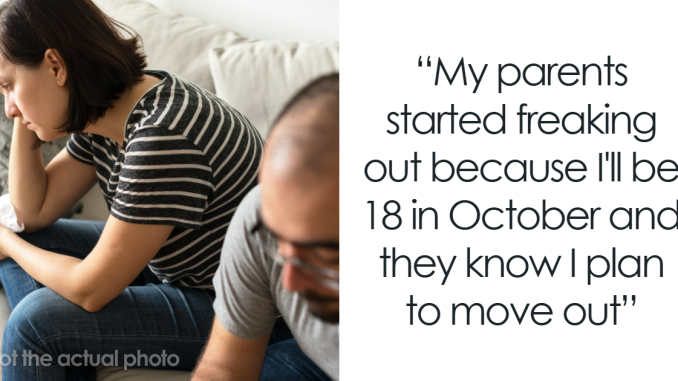
Not all children have the luxury of being kids, and parentified children know this best. The National Alliance for Caregiving claims that 1.4 million American children and adolescents experience parentification. But not all kids accept those responsibilities in stride: some rebel.
Like this 17-year-old teen did. He broke it to his parents that he’s not planning on continuing to help raise his nine younger siblings once he turns 18 and moves out of the house. When they started guilt-tripping him, the teen turned to the Internet for some unbiased opinions.
Raising lots of kids can take a toll on parents, so, they sometimes seek help from their oldest
Image credits: krakenimages (not the actual photo)
But this teenager wasn’t planning on helping his parents and planned to move out after turning 18
Image credits: Curated Lifestyle (not the actual photo)
Image credits: Curated Lifestyle (not the actual photo)
Image source: Personal-Car-6481
Expecting the eldest child to take care of their younger siblings is unfair and harmful in the long run
Image credits: Tima Miroshnichenko (not the actual photo)
Being the eldest sibling can be a lot on a child’s or a teen’s plate. In a big family, parents might expect the eldest child to take care of the younger siblings: prepare their meals, take them to bed, and babysit them. All these tasks are what parentification is.
Altheresa Clark, LCSW, told HuffPost that it’s an especially common trait in some cultures, especially in BIPOC families. “You are supposed to help your younger sibling — it’s just expected of you to serve in those roles,” she explained.
As mental health consultant Imi Lo told Bored Panda in a previous interview, expecting the eldest child to take care of siblings is not only unfair but can be harmful as well.
“Even as an older sibling, you are still a child yourself with your own developmental needs,” she explained back then. She noted that taking on the role of a caregiver is “not developmentally appropriate” for teens and is “beyond their capacity.”
Parentified children lose a chunk of their childhood and teenage years, but its effects can continue well into adulthood. Such adults tend to be people pleasers, find it hard to form their own identity, and are perfectionists and overachievers.
Parentified children might develop hyper-independence, which stops them from forming meaningful relationships
Image credits: Tima Miroshnichenko (not the actual photo)
Many commenters urged the teen to move away and start their own life. “Your goal is independence,” one user wrote, at the same time noting that it might be difficult. Indeed, parentified teens might find moving away and living independently harder than their peers.
As Imi Lo explained to us previously, parents often guilt-trip the child when they want to break away. As a consequence, the children “may feel guilty pursuing their own aspirations and feel obligated to always prioritize family responsibilities,” she pointed out.
In some cases, parentified teens might develop hyper-independence. “The child may become an adult who believes they cannot make a mistake, must be ‘perfect,’ and cannot rely on anyone but themselves,” Annie Tanasugarn, PhD., CCTSA, writes for Psychology Today.
While a healthy dose of independence is necessary, parentified children shouldn’t refrain from relying on others. Tanasugarn notes how important it is to address your trust issues and allow yourself to be vulnerable with the people you love.
“It’s something I need to do for me,” the teen claimed, and most netizens supported him
Most people urged the teen to start living his life independently
The post Parents Of 10 Kids Freak Out After Eldest Says He’s Moving Out Once He Turns 18 first appeared on Bored Panda.
